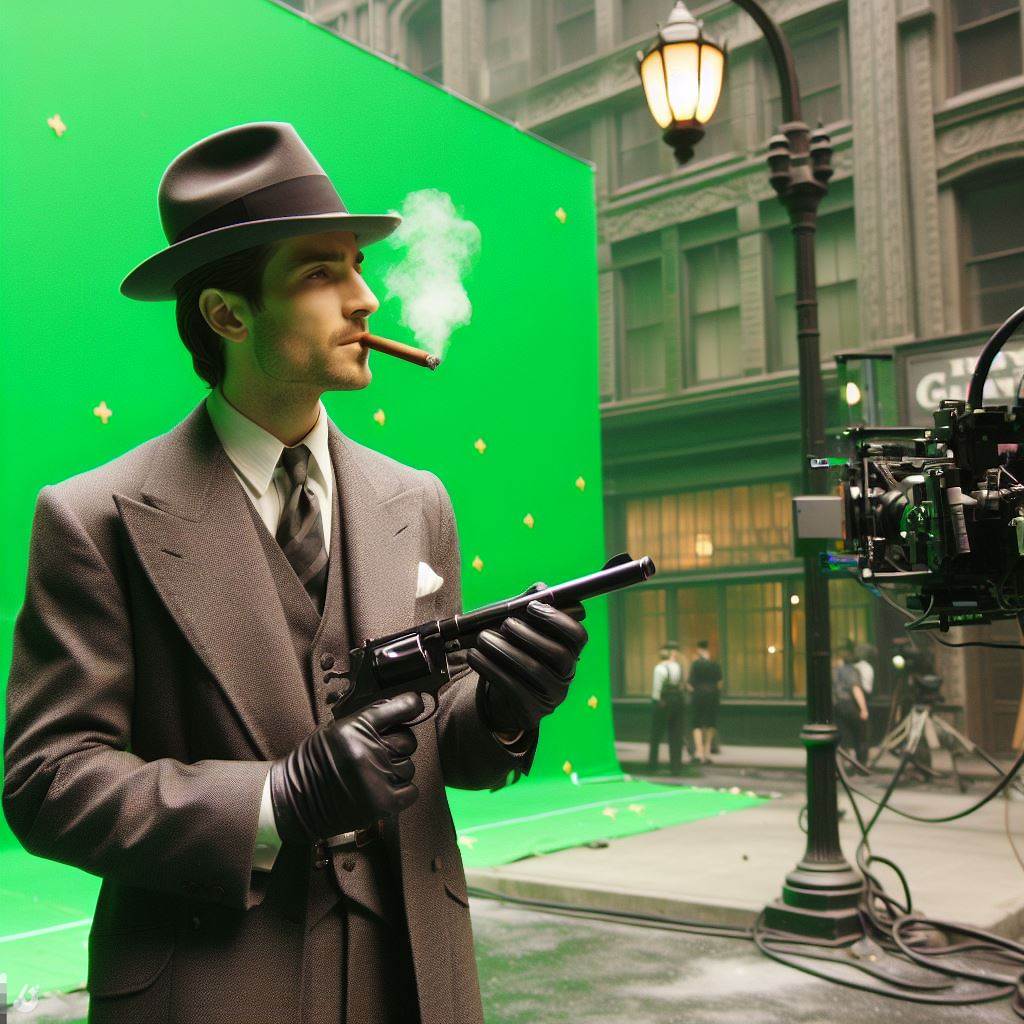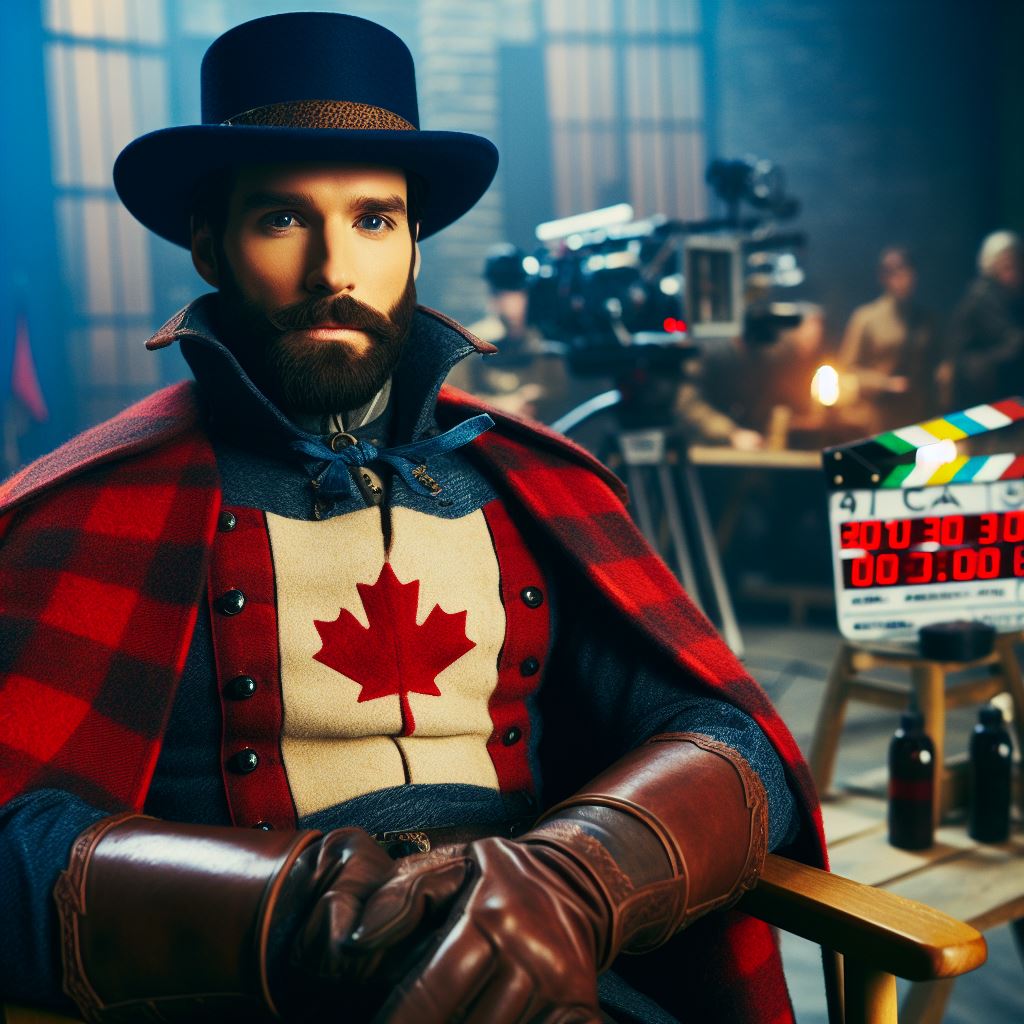Introduction
Monologue mastery for Canadian actors
Monologue mastery is essential for Canadian actors in auditions and performances. Why is it so important?
Mastering monologues is crucial for Canadian actors when it comes to auditions and performances.
It showcases their skills, talents, and range to casting directors, agents, and audiences.
But why is it so important? Let’s delve deeper.
Importance of mastering monologues for auditions and performances
Imagine this: you are in an audition room, surrounded by talented actors, all vying for the same role.
The casting director asks you to perform a monologue.
Your heart races, palms sweat, as you realize this is your moment to shine.
A well-executed monologue has the power to captivate, engage, and leave a lasting impression.
It is your opportunity to demonstrate your acting abilities, demonstrate your understanding of the character, and showcase your range.
Whether it’s a dramatic, comedic, or classical piece, mastering monologues can set you apart from the competition.
Not only are monologues essential for auditions, but they also play a crucial role in performances.
From theater productions to film and television, monologues offer moments for actors to connect with the audience, convey a character’s emotions, and tell a compelling story.
It is through monologues that actors can truly showcase their talent and leave a lasting impact on the audience.
Basically, mastering monologues is of utmost importance for Canadian actors.
It is the key to unlocking their potential, standing out in auditions, and delivering powerful performances.
So, are you ready to embark on the journey of monologue mastery?
Let’s dive in and explore the tips and techniques that will elevate your acting career to new heights.
Understanding Monologues
What a monologue is and its role in acting
A monologue is a solo performance in which one actor speaks uninterrupted for a period of time.
It is an essential tool in acting, allowing actors to showcase their skills and connect with their audience.
Monologues can be found in various forms of theater, including plays, films, and auditions.
Different types of monologues
There are different types of monologues, each with their own unique characteristics and significance.
Classical monologues
Classical monologues are often taken from well-known plays, such as Shakespearean works.
These monologues require actors to understand the complexity of the language and the historical context in which they were written.
Mastering classical monologues can demonstrate an actor’s ability to handle complex and poetic dialogue.
Contemporary monologues
Contemporary monologues, on the other hand, are more relatable to modern audiences.
Unlock Your Career Potential
Visualize a clear path to success with our tailored Career Consulting service. Personalized insights in just 1-3 days.
Get StartedThey often tackle issues and themes that are relevant in today’s society.
These monologues allow actors to showcase their versatility and ability to connect with the audience on a personal level.
By mastering contemporary monologues, Canadian actors can demonstrate their understanding of current social issues and their ability to bring them to life onstage.
Reasons for Mastering Monologues
Canadian actors should focus on mastering monologues for several reasons.
Firstly, monologues are frequently used in auditions, both for theater productions and film roles.
Being able to deliver a powerful and engaging monologue can greatly increase an actor’s chances of securing a role.
By mastering monologues, Canadian actors can stand out from the competition and leave a lasting impression on casting directors and producers.
Additionally, mastering monologues can enhance an actor’s overall skills and technique.
Monologues require actors to memorize and deliver lengthy pieces of dialogue, which can improve their memory and concentration.
It also allows actors to explore different emotions and characters, expanding their range as performers.
By regularly practicing and mastering monologues, Canadian actors can build confidence in their abilities and become more versatile in their craft.
Tips to help Canadian actors master monologues
- Choose monologues that resonate with you personally. Select material that you can connect with and relate to on a deeper level. This will make it easier for you to convey genuine emotions and engage the audience.
- Understand the context and subtext of the monologue. Research the play or film it is from, and analyze the character’s motivations and background. This will give you a deeper understanding of the monologue and help you deliver a more authentic performance.
- Practice regularly. Just like any other skill, mastering monologues requires consistent practice. Set aside dedicated time each day to rehearse your monologues and work on your delivery and interpretation.
- Seek feedback from trusted mentors or acting coaches. They can provide valuable insights and help you improve your performance. Take their advice and make adjustments accordingly.
- Record yourself performing the monologue. By watching the recording, you can objectively assess your performance, identify areas for improvement, and refine your delivery.
Remember, mastering monologues is a continuous process. It takes time, dedication, and perseverance.
By focusing on this essential skill, Canadian actors can enhance their audition success rate, showcase their talent, and elevate their overall acting abilities.
Read: The Reality of Acting Gigs in Canada: What to Expect
Choosing the Right Monologue
When it comes to mastering monologues, Canadian actors need to carefully choose the right material that showcases their strengths and aligns with their personality.
The selection of a monologue can make or break an audition or performance.
Here, we provide essential tips for selecting the perfect monologue for Canadian actors:
Consider Your Strengths and Personality
In order to truly shine in a monologue, it is crucial to choose material that highlights your strengths as an actor.
Reflect on your range and abilities, and select a monologue that allows you to showcase those talents.
Whether you excel at comedic timing or have a knack for intense dramatic scenes, choose a monologue that plays to your strengths.
Take Your Audience, Purpose, and Casting Directors into Account
While your own preferences and strengths are important, it is equally crucial to consider your audience, purpose, and target casting directors.
If you are auditioning for a specific role or production, research the show and understand its tone and style.
Tailor your monologue selection to align with the expectations of the casting directors and producers.
Reliable Sources for Finding Monologues Suitable for Canadian actors
Canadian Playwrights
Start by exploring works by Canadian playwrights.
This allows you to connect with material that is inherently relatable and offers a unique Canadian perspective.
Look for monologue collections by renowned Canadian playwrights such as Norm Foster or Judith Thompson.
Bookstores and Libraries
Visit local bookstores or libraries and browse through monologue anthologies.
Numerous books are available that specifically cater to Canadian actors and include a wide variety of monologues suitable for different age ranges, genders, and genres.
Drama Schools and Acting Programs
Check out drama schools and acting programs.
Many of these institutions have libraries or online resources where you can access a wide range of monologues suitable for auditions or scene work.
They often provide monologue collections used by their own students, which are designed to cater to the needs of Canadian actors.
Online Databases and Websites
Explore online databases and websites that offer a vast collection of monologues for actors.
Websites such as ActingScene.net and MonologueBlogger.com provide a platform specifically dedicated to actors seeking monologues.
These platforms often categorize monologues based on genre, gender, age, and duration.
Workshops and Acting Communities
Attend acting workshops or become a part of local acting communities.
These platforms often provide access to monologue resources and offer opportunities to network with other actors.
Engaging with other actors can be a valuable resource for finding unique and lesser-known monologues.
In general, the key to choosing the right monologue for a Canadian actor lies in considering their strengths and personality, as well as the expectations of the audience, purpose, and target casting directors.
By exploring reliable sources such as Canadian playwrights, bookstores, libraries, drama schools, online databases, and workshops, actors can find the perfect monologue that showcases their talent and captivates their audience.
Read: Building Your Acting Portfolio: Canadian Insights
Monologue Preparation
Importance of thoroughly understanding the character and the context of the monologue
Monologue preparation is crucial for Canadian actors looking to master their craft.
Thoroughly understanding the character and the context of the monologue is of utmost importance.
By effectively analyzing the script and developing the character, actors can bring depth and authenticity to their performances.
Incorporating emotions requires identifying the character’s primary emotions and their emotional shifts throughout the monologue.
Effective methods for script analysis and character development
Script analysis helps actors discover the character’s unique voice, speech patterns, and mannerisms.
Additionally, exploring physicality and gestures that embody the character’s essence adds layers to the performance.
Developing a clear objective for the monologue is essential.
Understanding what the character is trying to achieve and the obstacles they face helps shape their emotional state.
To evoke genuine emotions, actors can draw from personal experiences, memories, or imagined circumstances.
Vulnerability is key in accessing the appropriate emotions for the monologue.
Exploring the character’s internal conflicts and struggles further enhances their emotional journey.
Various techniques for incorporating emotions and depth into a monologue performance
Breathing exercises and relaxation techniques
Practicing the monologue with different emotional approaches allows actors to experiment with intensity and subtlety.
Breathing exercises and relaxation techniques help prepare actors mentally and physically.
Recording and analyzing rehearsal performances is beneficial for refining delivery and emotional nuances.
Seeking feedback from coaches or fellow actors can provide valuable insights and constructive criticism.
Continuously refine the monologue performance
Continuously refining the monologue performance is crucial.
Making adjustments based on feedback and self-reflection helps actors grow and improve.
During the performance, staying committed to the character’s truth and being open to exploring new perspectives is essential.
Embracing vulnerability and connecting with the audience through genuine and compelling portrayals creates powerful monologue performances.
In essence, thorough monologue preparation is vital for Canadian actors.
By understanding the character and the context of the monologue, employing effective methods of script analysis and character development, and incorporating emotions and depth into the performance, actors can master the art of monologue delivery.
With dedication, practice, and the utilization of various techniques, actors can captivate and move audiences with their monologue performances.
Read: Balancing Acting & Life: Tips from Canadian Actors

Building Acting Skills
Practical exercises and techniques to enhance acting skills specifically for monologue performances
When it comes to mastering monologues, Canadian actors can benefit from practical exercises and techniques specifically designed to enhance their acting abilities.
Whether you are a seasoned actor or just starting out, these exercises and techniques can help you deliver powerful and captivating monologue performances.
Deep Breathing
Breathing exercises are essential for any actor, as they help to calm the nerves and improve focus.
Before starting your monologue, take a few moments to practice deep breathing.
Inhale deeply through your nose, allowing your belly to expand, and exhale slowly through your mouth.
This will help you connect with your body and establish a strong foundation for your performance.
Vocal Warm-ups
Your voice is a powerful tool in delivering a compelling monologue.
Warm up your voice by doing vocal exercises such as tongue twisters, lip trills, and gentle humming.
This will not only improve your vocal clarity but also help you project your voice effectively on stage.
Physical Warm-ups
Acting is not just about delivering lines; it also involves using your body to convey emotions and tell a story.
Before performing a monologue, engage in physical warm-up exercises such as stretching, yoga, or dance.
This will help you loosen up your body and increase your physical presence on stage.
Character Development
Developing a deep understanding of your character is essential for delivering a convincing monologue.
Take the time to research and analyze your character’s background, motivations, and objectives.
Experiment with different physical and vocal choices to bring your character to life and make them relatable to the audience.
Memorization Techniques
Memorizing lines can be a daunting task, but there are techniques that can make it easier.
Break your monologue into smaller sections and rehearse each section separately.
Use visualization techniques to associate specific lines with images or actions to trigger your memory.
Repeatedly practice your monologue until it becomes second nature.
Emotionally Connect
The key to delivering a powerful monologue is to emotionally connect with the material.
Understand the emotional journey of your character and find ways to tap into your own experiences to evoke genuine emotions.
Allow yourself to be vulnerable and open during your performance, as this will create a deep connection with the audience.
Stage Presence
Stage presence plays a significant role in the delivery of monologues.
Stand tall, maintain good posture, and use the stage to your advantage.
Make purposeful movements that complement your character and the emotional beats of the monologue.
Use eye contact to engage with the audience and create a connection.
Seek Feedback
Feedback is crucial for growth as an actor.
After performing a monologue, seek feedback from trusted peers, acting coaches, or directors.
Listen to their observations and constructive criticism, and use it to refine and improve your performance.
In addition to exercises and techniques, there are resources and acting classes that can further develop and refine your acting skills specifically for monologues.
Consider joining local acting workshops, enrolling in acting classes at reputable theater schools, or seeking online resources and tutorials.
Remember, mastering monologues requires dedication, practice, and a willingness to explore and take risks.
By incorporating these exercises and techniques into your acting practice, you can build a strong foundation for delivering captivating and powerful monologues as a Canadian actor.
Read: Acting School in Canada: Is It Worth It?
Learn More: Art Festivals in Canada: A Must-Visit for Artists
Rehearsing and Feedback
Continuous rehearsal and practice are essential for honing monologue performances.
Here are some tips to help you improve:
The value of continuous rehearsal and practice
Rehearsing regularly is crucial for mastering monologues.
Treat each rehearsal as an opportunity to refine your performance and make it more compelling.
Set aside dedicated time each day to work on your monologue.
Create a routine that allows you to focus solely on your acting skills and develop a deep understanding of your character’s motivations.
Use various techniques in your rehearsals, such as repetition, improvisation, and physical exercises.
This will help you unleash your creativity and explore different aspects of your character.
Seek constructive feedback
Feedback plays a vital role in improving your monologue performances.
Actively seek feedback from acting coaches, fellow actors, or mentors who can provide constructive criticism.
Choose individuals who have experience and knowledge in the acting industry.
Their insights can help you identify areas for improvement and offer suggestions on how to enhance your performance.
Join acting workshops, classes, or theater groups where you can receive regular feedback from professionals.
Engaging in constructive discussions about your monologue will expand your understanding and push you to grow as an actor.
Incorporate feedback and make necessary improvements
Once you receive feedback, it’s crucial to remain open-minded and receptive to suggestions.
Remember that constructive criticism is meant to help you grow as an actor and refine your performance.
Take note of specific areas highlighted for improvement and actively work on them during your rehearsals.
Experiment with different techniques and approaches to see what works best for your character and the context of the monologue.
Consider recording your rehearsals and performances to evaluate your progress.
This will allow you to objectively analyze your acting choices and make necessary adjustments.
Don’t be afraid to take risks and step out of your comfort zone.
Incorporate the feedback you receive while staying true to your interpretation and artistic vision.
Seek feedback on both the technical aspects of your performance, such as voice projection and body language, as well as the emotional depth and authenticity of your portrayal.
Rehearsing and seeking feedback are crucial steps towards mastery of monologues.
Emphasize the value of continuous practice, actively seek constructive feedback, and use the insights to enhance your performances.
Remember that growth as an actor comes through continuous learning and improvement.
Stay dedicated, open to feedback, and always challenge yourself to push the boundaries of your abilities.
See Related Content: Canadian Art Grants: Writing a Winning Proposal
Showcasing Monologues
Monologues are a powerful tool for actors to demonstrate their range and abilities.
Whether you are a seasoned actor or just starting out, showcasing your monologues can open up opportunities and help you grow as a performer.
Here are some suggestions on how to showcase your monologue performances:
Opportunities to showcase monologue performances
- Local Theater Productions: Keep an eye out for auditions in your local theater community. Many productions, especially smaller ones, include monologues as part of their casting process. Participating in these auditions can give you a chance to showcase your monologue skills to a live audience.
- Audition Workshops: Look for audition workshops or classes in your area. These can provide valuable guidance and feedback on your monologue performances from experienced professionals. They also often include mock auditions where you can showcase your monologue in a supportive environment.
- Acting Competitions: Explore acting competitions that specifically require monologue performances. These events provide an opportunity to showcase your skills in front of a panel of judges and potentially win recognition or prizes. Research local, national, and international competitions to find the best fits for your goals.
Benefits of recording and sharing monologue performances online
- Wider Reach: Recording and sharing your monologue performances online allows you to reach a wider audience beyond your local community. Social media platforms, YouTube, and specialized platforms for actors (such as Actor’s Access or Backstage) can help you showcase your talent to casting directors, agents, and other industry professionals.
- Networking Opportunities: Sharing your monologue performances online can lead to networking opportunities. Industry professionals may stumble upon your videos and become interested in your work, potentially leading to collaborations or future auditions.
- Feedback and Growth: Posting your monologue performances online opens the door for constructive criticism and feedback from other actors, directors, and audience members. Their input can help you grow as a performer and refine your monologue skills.
Tips on creating a compelling self-tape for monologue auditions
- Set the Stage: Choose a suitable location with good lighting, minimal distractions, and a neutral background. Make sure the focus is solely on your performance.
- Camera Setup: Use a tripod or stable surface to position your camera at eye level. Ensure the shot captures your entire body or follows the requirements specified by the audition guidelines.
- Sound Quality: Pay attention to the audio quality of your self-tape. Avoid recording in noisy environments, and consider using an external microphone for better sound clarity.
- Rehearse and Prepare: Memorize your monologue and rehearse it thoroughly before recording. Ensure you understand the character, their objectives, and the emotional journey of the monologue.
- Use Props and Costumes Wisely: If appropriate for your monologue, consider incorporating props or costumes to enhance your performance. However, make sure they enhance, rather than distract from, your portrayal.
- Edit Thoughtfully: When editing your self-tape, focus on capturing your best performance. Trim any unnecessary footage, but avoid over-editing to the point where it feels artificial or disjointed.
- Multiple Takes: Record multiple takes of your monologue to have options during the editing process. Each take may bring different nuances to your performance.
- Show Emotional Range: Highlight your ability to convey emotions effectively. Showcase the depth and range of your acting skills through subtle nuances or impactful moments.
Remember, showcasing your monologue performances is a chance to demonstrate your talent and unique abilities as an actor.
Put your best foot forward, be authentic, and keep refining your craft. Good luck!
Conclusion
Mastering monologues is crucial for Canadian actors to succeed in their acting careers.
Throughout this blog post, we have discussed various tips for monologue mastery.
We have emphasized the importance of choosing the right monologue that suits your personality and showcases your strengths as an actor.
Taking the time to analyze and understand the character you are portraying is also vital.
Another key point discussed is the importance of rehearsing and practicing your monologue.
By doing so, you can perfect your delivery, timing, and expression, ultimately leaving a lasting impression on casting directors and audiences.
Furthermore, we have highlighted the significance of connecting emotionally with the material.
This allows the actor to deliver a convincing performance that resonates with the audience.
As aspiring actors, it is crucial to put these tips into practice and embrace monologue mastery as a fundamental aspect of our acting careers.
By doing so, we enhance our confidence, versatility, and overall acting skills.
So, let us challenge ourselves to perfect our monologues, dive deep into the characters we portray, and deliver powerful performances that leave a lasting impact on the audience.
Monologue mastery is the key to success for Canadian actors!




